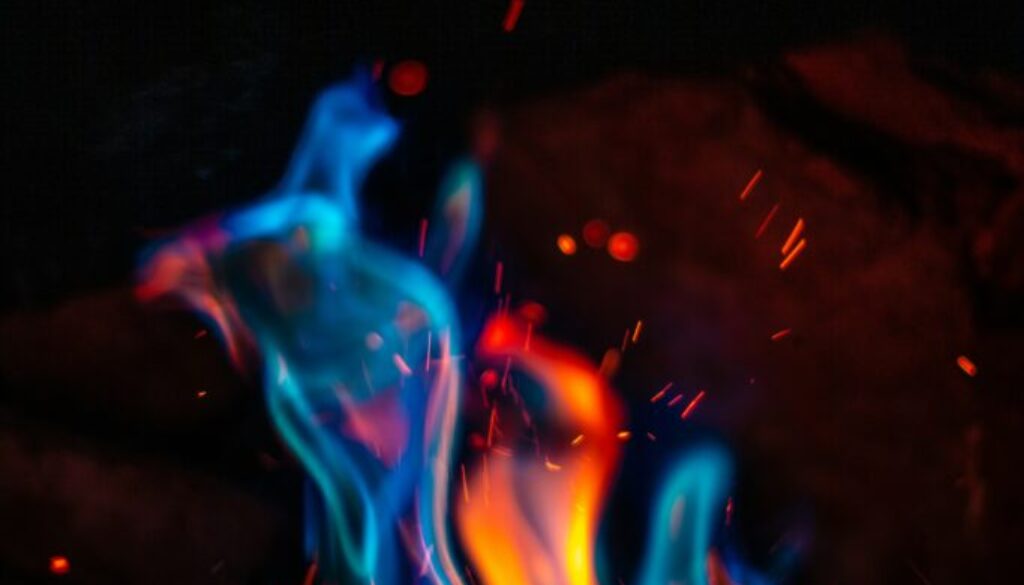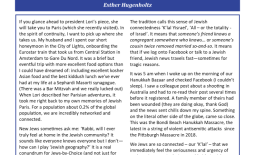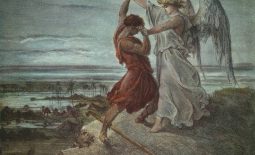We Didn’t Start The Fire
This Shabbat is also known as Shabbat Shirah, the Sabbath of Song. This name refers to ‘Shirat haYam’, the ‘Song of the Sea’ that Moses and Miriam sang on the shores of the Sea of Reeds that they had redemptively crossed. I hope you’ll please indulge me as I start with this sermon with a well-known tune.
“We didn’t start the fire
It was always burning since the world’s been turning
We didn’t start the fire
No, we didn’t light it, but we’re trying to fight it.”
The span of generations can be united over this tune because we know it either as 80’s kids from Billy Joel or contemporarily, from a modern band called Fallout Boy who made a compelling cover. I remember being mesmerized by this song when I was an 80’s kid but the words speak ever deeper now: this vertiginous sense of being pulled in an unrelenting vortex of crises, or a ‘polycrisis’ – a term coined by French theoretician Edgar Morin. As the Fallout Boy lyrics have it:
“More war in Afghanistan, Cubs go all the way again
Obama, Spielberg, explosion Lebanon Unabomber, Bobbitt, John, bombing Boston Marathon
Balloon Boy, War on Terror, QAnon
Trump gets impeached twice, Polar bears got no ice
Fyre Fest, Black Parade, Michael Phelps, Y2K Boris Johnson, Brexit, Kanye West and Taylor Swift
Stranger Things, Tiger King, Ever Given, Suez”
We might pick out a few references here and for sure, add many of our own. With the news cycle being what it is, ‘We Didn’t Start The Fire’ risks becoming ‘This Is the Song that Never Ends.’ The word ‘firehose’ is an overused but accurate term to describe what we are enduring now.
For our ancient Israelite ancestors, the news cycle would undoubtedly have been much slower, but if we take our master story of the Exodus to heart, we can only imagine the discombobulation of Israelite and Egyptian alike after the shock and awe of the Ten Plagues.
In last week’s Torah portion, Pharaoh’s courtiers desperately proclaimed that ‘Egypt is lost.’ In this week’s portion, we learn that this new Israelite nation has to undergo a long and arduous journey to deprogram themselves from their enslavement mentality. The portion opens with an unexpected gambit:
“Now when Pharaoh let the people go, God did not lead them by way of the land of the Philistines, although it was nearer; for God said, “The people may have a change of heart when they see war, and return to Egypt.” (Ex. 13:17)
Such a simple verse betrays so much psychological complexity.
The people, despite God fighting their corner, are afraid. They are nervous, trepidatious and traumatized. God knew that they need a ‘long way round’ to find their sense of self again and recover their courage. God also knew that ‘returning to Egypt’ wasn’t an option; it would jeopardize the entire project of redemption. Despite the pyrotechnics and spectacle the Israelites had been subjected to, God is saying: ‘slow down.’
Perhaps that is what we should tell ourselves as well, counterintuitively, perhaps. Slow down. Be less reactive. Sit mindfully with our anxiety. Create space to breathe, process, observe and strategize.
‘It was always burning since the world is turning’, Billy Joel sings. It is tempting to read this as fatalistic; perhaps the moral arc of the universe doesn’t bend towards justice but flatlines into nihilism. But that is not what the Torah teaches us here. The Torah doesn’t tell us to get off the road; just to pull over and reprogram our Google Maps.
The Torah knows that we can only face the polycrisis through a measured, disciplined and psychologically astute response. The mission is to lead all of us to a place of safety and perspective.
I met with a wonderful group of congregants this week at our local retirement community. It is part of our quarterly lunch tradition. We talked, of course, about the issues of the day, questions of statecraft and the moral call placed upon us to safeguard the rights of the vulnerable.
I don’t have easy answers – or any answers, for that matter. Sometimes I too feel like I have lost the words. But one thing from which I derive both perspective and passion is that no matter the fires burning around us, we can straighten our backs and brace our moral core. Whatever the contingencies and catastrophes of our world; our dignity, our morality and our humanity is not something that others can compromise on our behalf. We should not compromise it either. It is both our last resort and our first priority.
Our dignity, morality and humanity anre our most prized possessions.
We are stronger than we think we are; we are strong in community. Strong in the master stories of justice and compassion that the tradition weaves into our lives. All we need to do is pace ourselves. This is the Torah’s wise counsel to us.
Ironically, a few verses down, the Torah does mention fire. A pillar of cloud by day, a column of fire by night. This fire kept burning and provided us with both fuel to propel ourselves and vision to cut through the darkness.
I know many of us are struggling; and searching for our own pillars to hold onto. They may not be monuments of spectacle or feats of the miraculous but they are there; subtler perhaps than the Torah’s pyrotechnics, but smoldering with the Torah’s heart.
Love the stranger. Take care of each other. Uplift each other’s dignity. Know that we have faced crises before. Walk with each other. Check in with each other. Keep an open and curious mind. Discern your core principles.
The moment we face may feel like the ending of many certainties, but it is also the beginning of something new. Like the Israelites, we cannot yet see what it is. But we know our own hearts; and God holds our hearts together.
There will be much reflecting and strategizing in time to come. But the words of the Prophets, whether the fiery ones, like Miriam or Devorah, or the comforting ones, like Micah, remain our lodestar:
“You have been told, O mortal, what is good, And what GOD requires of you: Only to do justice And to love goodness, And to walk modestly with your God.”
We will keep on walking. And we won’t go back.




